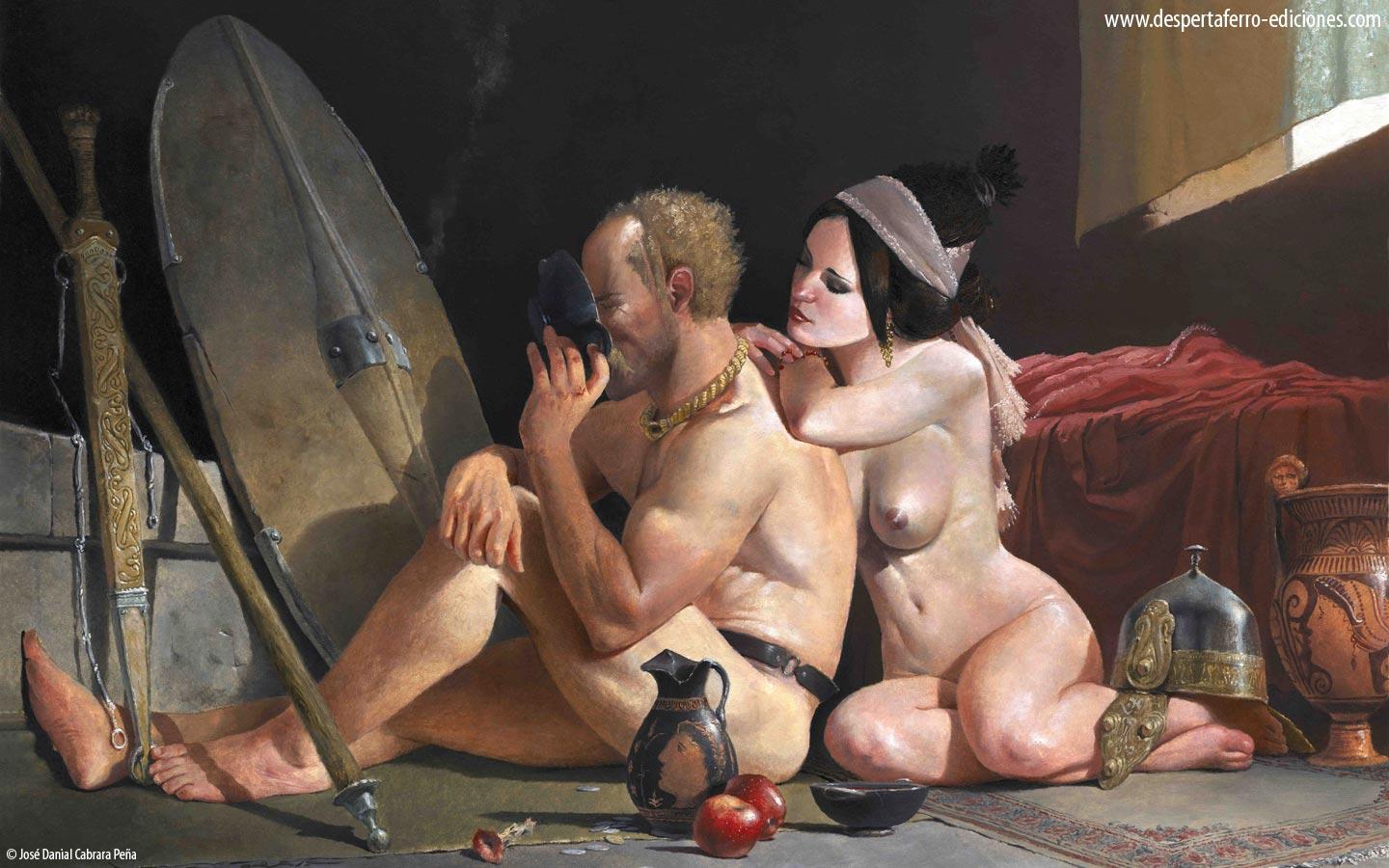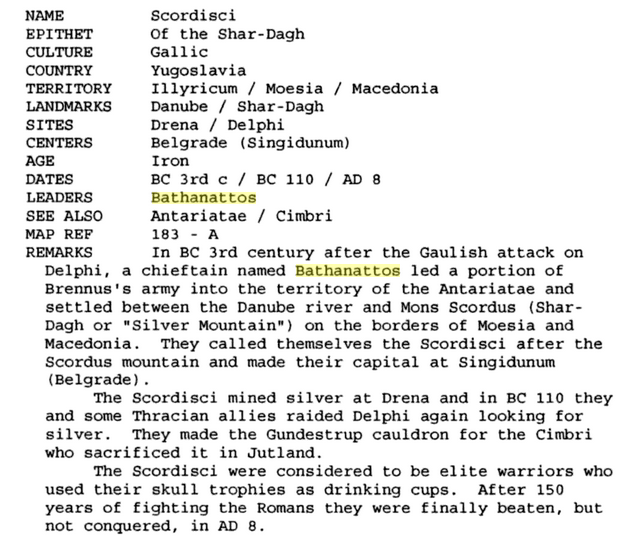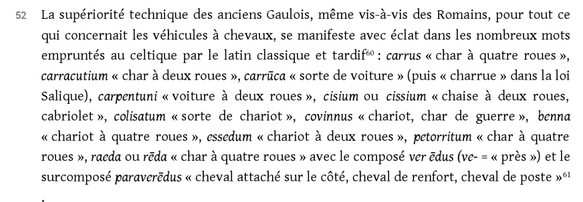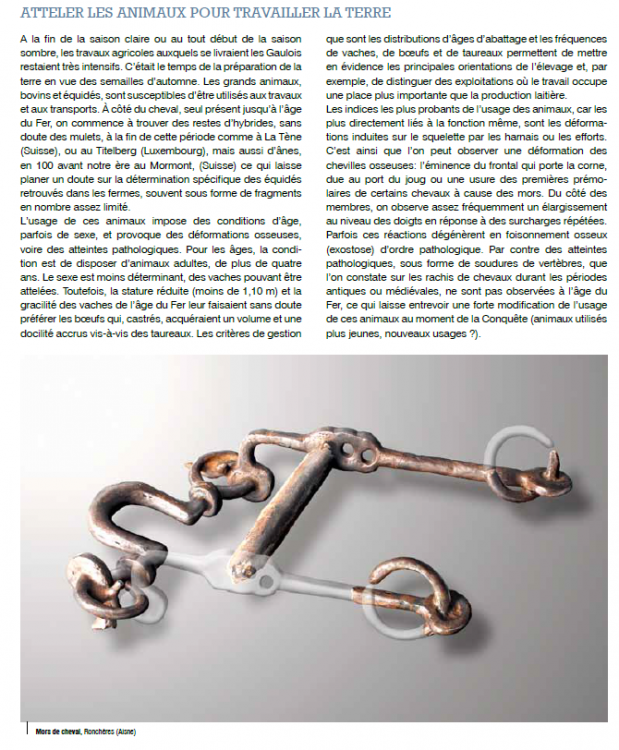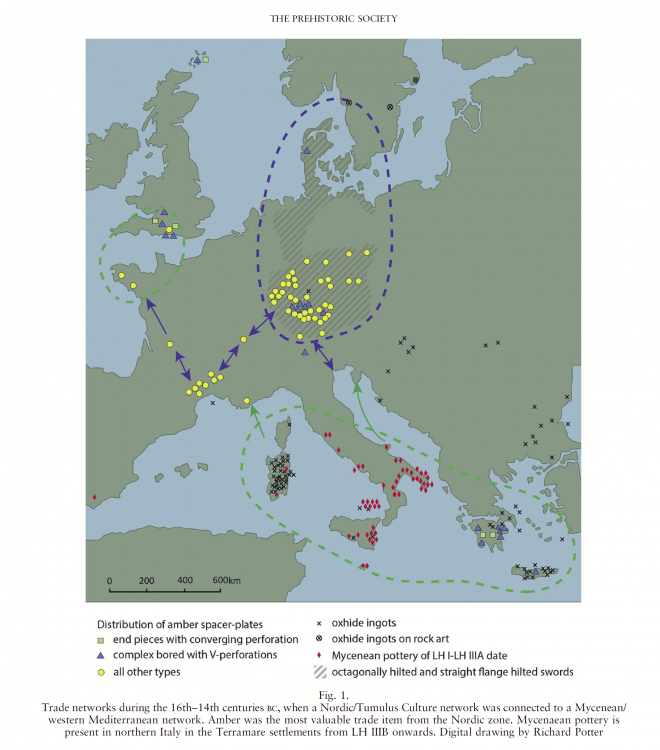-
Posts
2.457 -
Joined
-
Last visited
-
Days Won
88
Everything posted by Genava55
-
Probably not actually. Gaul specifically designate Gallia Transalpina. The game is portraying Brennus and Britomaros which are major protagonists in Gallia Cisalpina. So clearly, the Gauls of the game are not constrained to the people in the area of what the Romans called Gaul. This seems related to the ethnical label in use by the Romans, which is much more logical.
-
It depends on the definition of "Gauls" and "Gallic". For the ancients, the use of the words Galátēs, Galli, Celtae or Keltoi is inconsistent. In addition, they are using the same word for different cultures, like Keltoi/Celtae. So personally I use Gallic to refers to the La Tène culture in general. Concerning Bolgios, he is described as a Gaul by the historian Justin. Edit: another candidate could be Bathanattos, see: Representing historical evolution of a faction through strategical choices by the player is indeed a great idea. Although I doubt there is that much support for this idea (or this is a silent minority).
-
I was referring to this: The Gaesatae (‘spear-men’) were distinguishable as a distinct group and at Telamon appear to have been a lately arrived mercenary force. Their ritual nakedness may have been a demonstration of their oneness as a fighting body. Nakedness in battle is again referred to in Galatia in 189 bc, when the Tolistobogii and Trocmi took off their clothes before battle with the Romans, exposing their podgy white bodies, enhancing the vividness of their wounds as they were cut to pieces by the Roman force.
- 264 replies
-
- britons
- east celtic
-
(and 2 more)
Tagged with:
-
The current texture should be enough. As Nescio said, they are a mobile force during the Gallic Wars, so at the best they could have a helmet for the elite version, like the Coolus type.
-
Did the console says something? Is there any import message error?
-
Four wheeled chariot driven by cattle could be a possibility. The two attested animals in use for hard work and transport during the iron age are the horse and the ox (boeuf): The Gallic chariots were diverse and the most renown were those adapted for horses, although this is not necessarily the kind of chariot used by the merchants:
- 264 replies
-
- 1
-

-
- britons
- east celtic
-
(and 2 more)
Tagged with:
-
There is a good relief found in Italy depicting a Celtic chariot: No doubt that the naked warrior is a real thing in Gallic society. However, I really disagree with Barry Cunliffe's opinion about the oneness of fighting naked. The Gaesatae are recorded only one time as fighting naked and the account at Telamon seems to suggest an exception more than a common thing for them. Their king is Viridomaros/Britomaros and is described as bearing a colorful armor at the battle of Clastidium. So I don't see the "oneness" in that. Everything suggests it was also perform as an act of individual bravado, so I would be careful to associate it to any group identity. A larger excerpt from Diodorus Siculus (hist. 5, 29): A small note about the interpretation of their name, Gaesatae/Gaisatoi doesn't necessary mean "spear-men", the same way hastati doesn't always designate spearmen and samurai doesn't always designate attendants. The use of a word and its etymology is not the same thing, we know that in old Irish gaiscedach can designate a warrior or a champion in general even if the root originally derives from gae, the spear. Finally the duel of Manlius Torquatus is probably made up by several Roman authors. First of all, the Roman is described by Livy as being armed of a Spanish gladius, which is anachronic for 361 BC. The same for the long and heavy sword of the Gaul, a topos completely anachronic for 361 BC when the La Tène swords weren't that long. Livy described the Gaul as wearing colored clothes while Aulus Gellius described the Gaul naked with two swords (which is completely absurd). Dion Cassius says it was the king of the Gauls while the others do not. The oldest record comes from Cicero (and still, this is two centuries after the event) where is says: So it seems the reality is unclear. There was a duel but that's all. I don't think my eyes recovered from the chapter 3 yet. Personally I find this book not that much useful for anybody wanting to portray better the Celts because in there, Barry Cunliffe is mixing stuff from the Neolithic to the Early Middles Ages, from different cultures in addition with his own beliefs and certitudes.
- 264 replies
-
- 1
-

-
- britons
- east celtic
-
(and 2 more)
Tagged with:
-
- 21 replies
-
- 2
-

-
.thumb.jpg.b21ca1d0c15fb56b42c39b25a0a40815.jpg)
Civ: Germans (Cimbri, Suebians, Goths)
Genava55 replied to wowgetoffyourcellphone's topic in Delenda Est
-
.thumb.jpg.b21ca1d0c15fb56b42c39b25a0a40815.jpg)
Proposal, Mayan City States [preclassic and classic]
Genava55 replied to Lion.Kanzen's topic in Rise of the East
Edit: Sorry Lion, I didn't see you just posted this video before -
.thumb.jpg.b21ca1d0c15fb56b42c39b25a0a40815.jpg)
Civ: Germans (Cimbri, Suebians, Goths)
Genava55 replied to wowgetoffyourcellphone's topic in Delenda Est
A Merovingian burial with the characteristic of a mounted aristocrat with a deep wound made by a sword or an axe on the frontal bone that healed. Another interesting feature... the skull shape suggests an African origin. -
.thumb.jpg.b21ca1d0c15fb56b42c39b25a0a40815.jpg)
Other strategy games not RTS.
Genava55 replied to Lion.Kanzen's topic in Introductions & Off-Topic Discussion
It is an "old" one but I just found it interesting. A few things about ancient Vietnam. https://en.wikipedia.org/wiki/An_Dương_Vương -
Indeed. The influence of Mycenaean on the late Bronze Age is undoubtful and the influence of the Etruscans and Early Greeks on the early Iron Age are also very important. An example: https://www.cambridge.org/core/services/aop-cambridge-core/content/view/S0079497X15000171
- 264 replies
-
- 1
-

-
- britons
- east celtic
-
(and 2 more)
Tagged with:
-
Nope. I live in Switzerland and I am not an archeologist nor a reenactor. I am a genuinely interested environmental scientist that like very much ancient history and archeology. I participated a bit in a few archeological projects through laboratory analyses but that's all. I simply translated the webpage for everyone here. This project is led by a reenactment group from the region of Amiens (therefore the reason of their name, Ambiani, the Celtic tribe of this location). They have a small re-enacted village at Pont Rémy (80) and the association is registered at Abbeville (80). But probably that for this project they filmed in different location in Picardie. They have worked with other association as well as the re-enacted village of Samara. https://www.les-ambiani.com/ http://www.samara.fr/
- 264 replies
-
- britons
- east celtic
-
(and 2 more)
Tagged with:
-
https://www.les-ambiani.com/le-pacte-gaulois/
- 264 replies
-
- britons
- east celtic
-
(and 2 more)
Tagged with:
-
.thumb.jpg.b21ca1d0c15fb56b42c39b25a0a40815.jpg)
The difference between the Persian women in the game & in the reality
Genava55 replied to shiraz's topic in Help & Feedback
@shiraz I think there is a misunderstanding between us. Let's start again, what is your issue about the current depiction of Persian women? It is only about the veil? What is your proposal? Veil for all the women? Actually the game does not depict especially noble women. -
.thumb.jpg.b21ca1d0c15fb56b42c39b25a0a40815.jpg)
The difference between the Persian women in the game & in the reality
Genava55 replied to shiraz's topic in Help & Feedback
Basically, the excerpt from Iranica Online sum it up well. There are plenty of variation and use in their clothing according to their social ranks or the context. The wikipedia page about the veil gives other indications: https://en.wikipedia.org/wiki/Veil So I don't think the current depiction of Persian women is that wrong. Maybe we can enhance it and diversify it. -
.thumb.jpg.b21ca1d0c15fb56b42c39b25a0a40815.jpg)
The difference between the Persian women in the game & in the reality
Genava55 replied to shiraz's topic in Help & Feedback
It is curious because other depictions suggest otherwise: https://www.jstor.org/stable/24048288?seq=1#metadata_info_tab_contents I think the relief is depicting something else: https://www.robertharding.com/preview/724-2550/medes-arachos-priests-tachara-palace-darius-exclusive-building/ https://fr.m.wikipedia.org/wiki/Fichier:Persepolis_Relief_Priests.jpg https://www.flickr.com/photos/dynamosquito/2527681346 -
Very probably yes. It is the case with Mycenaean Greece as well. I think the earliest known IE naked heroized warrior are the Yamnaya statues, which are a continuing tradition in the following Bell Beaker complex of cultures in Western Europe. http://data.over-blog-kiwi.com/0/57/66/91/20140218/ob_60cb16_an-attempt-at-reconstruction-of-the-earliest-indo.pdf
- 264 replies
-
- 1
-

-
- britons
- east celtic
-
(and 2 more)
Tagged with:
-
Exactly. This is the first proposal I made in the past. We don't know. There are two clear accounts of naked warriors in classical literature, the famous Gaesatae of Telamon and some Celts in the Balkans. In both accounts, no religious motive is said by the authors. From a mythological perspective, the Irish literature doesn't specify anything of religious about it. Although, it is a common thing in Indo-European comparative mythology (the Berserkir for example), it doesn't seem to have the same meaning for the Celts. There are some accounts of nakedness concerning mythical Welsh champions fighting in front of their host, challenging the enemies and enemies' champions. In my perspective, everything has a religious meaning in Celtic ethos but I don't think it was necessary a complex ritual involving a priest. I see it more like a warrior rite with a vow to the Gods, performed on the battlefield. Anyway, recruiting them in the temple is fine. I don't have a conclusive answer, this is a topic lacking evidences for their motives. For Greeks and Romans of the Republic era, probably not indeed. But for Hellenistic dynasties there isn't any reference of barracks? I am kindly asking, I have no idea if this is the case.
- 264 replies
-
- 1
-

-
- britons
- east celtic
-
(and 2 more)
Tagged with:
-
.thumb.jpg.b21ca1d0c15fb56b42c39b25a0a40815.jpg)
Total War saga news & videos
Genava55 replied to Lion.Kanzen's topic in Introductions & Off-Topic Discussion
More critical views. -
Taverns are indeed a very particular thing in the Gallic society and they appeared mostly around the 1st century BC with the Roman influence growing through trading. Taverns are often associated with amphorae storage, mostly filled with wine. There was one in the oppidum of Corent. Although the material found there is associated with strong Mediterranean influence and it could be owned by merchants, even Roman merchants. The tavern made by Stan is based on the shape of the tavern found in Lattara dated to the early Roman occupation of Gallia Narbonnensis. Lattara itself is not a typical "La Tène" oppidum, the town has been strongly influenced by Etruscans and Greeks. Although, if he was inspired by the shape of the building, he made a much more Gallic depiction of the tavern. Personally I have no issue with his depiction. The only thing is that in the Gallic society, there is no use of a tavern from a traditional perspective. There is a strong custom in Celtic societies for hospitality, a bit like Xenia in ancient Greece. Most of the respectable travelers would have been welcomed in the houses of Gallic freemen and aristocrats. Probably that the taverns arise with the increasing trade and also probably for the establishment of merchant guilds or networks across Gallic and Roman societies. So I don't see which use it could have excepted in the case of campaign scenarios. It could be recycled to another thing, this is another option. There are Gallic houses with courtyards and actually the depiction made by Stan falls better in this category (the heads at the entrance, the weapons, it suggests a warlike aristocratic house). I think the building can still be useful for people wanting to portray a Gallic oppidum. Either the act to put themselves naked is a religious vow to grant them the Gods favor in battle or it is a way to prove their bravery in the eyes of their peers. So the easiest ways to give access to their recruitment for the player is the temple, the fortress or the barracks. This is uninspired but at least it doesn't require new mechanics. The core of the problem is that from a historical perspective there are no barracks and no archery ranges in the Gallic society. There is no building dedicated to the recruitment of a specific warrior since it is a warrior society. Maybe there was some kind of storage for the weapons during the Oppida period (150 - 30 BC) since there are hints of general draft in the Gallic Wars accounts. So it means anyway there is no proper way to depict how it was really happening in the Gallic society with the game mechanics. So if someone wants particularly to create a specific barracks for Naked fanatics, I cannot disagree with it since it is the same situation with the regular barracks.
- 264 replies
-
- britons
- east celtic
-
(and 2 more)
Tagged with:
-
.thumb.jpg.b21ca1d0c15fb56b42c39b25a0a40815.jpg)
Total War saga news & videos
Genava55 replied to Lion.Kanzen's topic in Introductions & Off-Topic Discussion
Actually they did. Through their marketing, their blog and their advertising. In France, they added the label "recommandé par Historia" (a historical magazine) on the cover of Empire Total War. There was "Decisive Battles" documentaries by the History Channel (US) using Rome Total War engine. This is like the History Channel, often inaccurate and misleading because of their lies by omission. -
.thumb.jpg.b21ca1d0c15fb56b42c39b25a0a40815.jpg)
Total War saga news & videos
Genava55 replied to Lion.Kanzen's topic in Introductions & Off-Topic Discussion
‘A Total War Saga: Troy’ studio tries to solve historical accuracy issues https://micky.com.au/a-total-war-saga-troy-studio-historical-accuracy/ Mmm... I have no issue with a fantasy game. I have an issue with a game that pretends to be historical or an accurate representation while not doing really the effort.

